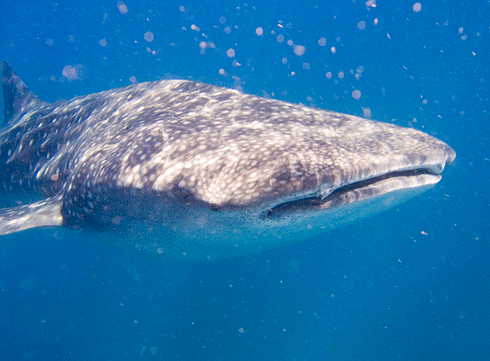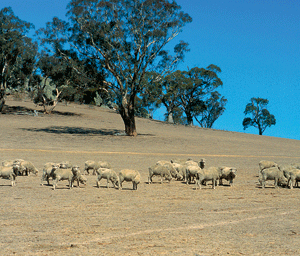
|
Published: 28 November 2011
Record numbers chase WA’s whale sharks
Whale sharks in the Ningaloo Coast World Heritage Area off Western Australia have attracted a record number of visitors to the region. Almost 17 500 people took part on whale shark watching tours to Ningaloo Marine Park this season, compared to around 14 000 during the 2010 season.
‘The World Heritage listing of the Ningaloo Coast World Heritage earlier this year further affirms Ningaloo’s position as one of the State’s most significant attractions.’ said WA’s Environment Minister, Bill Marmion.
The whale shark watching season traditionally runs from early March to July/August each year. Tour operators must be licensed by the state Department of Environment and Conservation.
Whale shark scientist, Brad Norman, from Murdoch University, is a key figure behind ECOCEAN’s ‘citizen science’ program, encouraging divers to file photographs of whale sharks they encounter in the ECOCEAN Whale Shark Photo-identification Library for use by marine biologists around the world.
‘The whale shark industry at Ningaloo is arguably one of the best managed in the world,’ he said. ‘Recent studies have shown that, contrary to the global trend, numbers of returning whale sharks at Ningaloo are stable – even increasing slightly.
‘However, cumulative impacts from human activities often are not identifiable in the short-term. It is imperative that research into human impacts and sustainability of this important resource and the ecotourism industry it supports are investigated.
‘ECOCEAN initiated a study aimed at determining the impacts of tourism on the sharks, especially how it affects their behaviour, with some outstanding results and insights into the natural world of this threatened species.
‘The project is challenging however, and with a shortfall in funding to complete the next phase, we are unsure what the future for whale sharks and whale shark ecotourism holds.’
Source: Ministerial media release/Brad Norman




